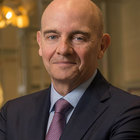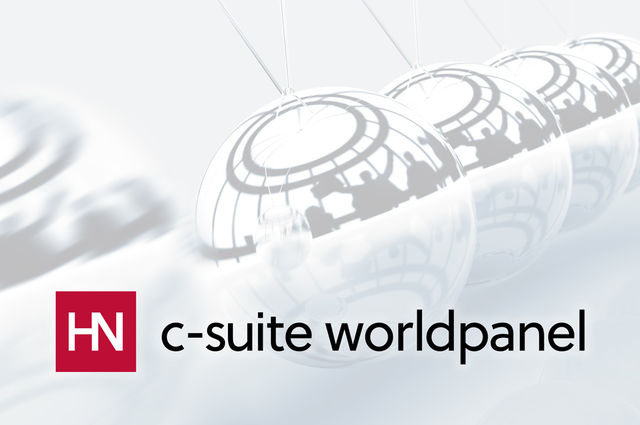How will you weather the next economic downturn?
10 experts shared their view
Although an economic recession and hotel industry downturn are far from certain, economic indicators, investor and corporate sentiment, as well as the recent operating performance of hotels in various sectors, point to an impending slowdown.
The current cycle, according to data intelligence firm STR, has continued virtually unabated since March 2010 with year-on-year RevPAR increases occurring in 112 of these 115 months. However, September 2019 was the second month this year when RevPAR results turned negative in the US, as increased supply outpaced demand. Similarly, PWC reports deceleration in the USA, with, for example, Q3 RevPAR growth at less 1%, the lowest figure since the industry began to recover from the 2008 economic crisis.
Some investment analysts suggest that hotel companies may not be adequately prepared for the eventual downturn. Investors and the hotel owners who increasingly rely on firms to operate their hotels may be right to be concerned about what such companies learned from the banking crisis of 2008.
The question, therefore, is how have the strategies of hotel companies changed or evolved over the past decade to help firms survive or even prosper during the next downcycle that may soon be upon us?

This viewpoint is co-created with IDeaS a SAS company
More information
Our extended-stay model is far more hedged to a downturn when compared to a traditional transient/group hotel. Even if the economy slows down, our focus remains on a targeted capital improvements program that will continue to fuel our growth in the coming years. Key is to have a plan in place, which we do.
Resilience and flexibility would be the two words I'd use to describe Accor's management style in the last financial downturn. We know rising tides float all boats, economically speaking, but it's in times of slowing growth that the true mettle of any leadership team is tested.
In 2008, I was in the midst of it as Regional Vice President/General Manager on property, and Accor had a very flexible approach – we made sure the interests of all stakeholders were understood, and the company was able to manage those interests accordingly. We have a very robust contingency model that we deploy within the hotels. We've learned from that experience that the model needs to be based on four pillars: continuing to drive revenue in all areas of the hotel, while evaluating our overheads in the areas that don't impact the guest experience, ensuring our business mix strategies maintain and/or grow our competitive indexes and continuing to ensure that our most valued asset, the colleagues, have a work experience that is appropriate for the various brands. Our owners are our partners and although this is always true, it is even more prevalent when there is sluggish growth.
One such opportunity is to draw on our commitment to innovation, which is core to the Accor DNA. We are optimized as an organization to challenge convention, look at things through a critical eye and adjust the elements to impact wholistic revenue and cost savings. The launch of our new loyalty program is the next evolution of Accor's innovation - ALL (Accor Live Limitless) will be launched in December. ALL represents a dramatic shift of Accor's loyalty program into a daily lifestyle companion that integrates rewards, services and experiences throughout Accor. With ALL, we are bringing value to everyday life whether guests and members live, work or play, elevating Accor's relationship with clients, members & partners from transactional to emotional and inventing a completely new aspirational way to LIVE LIMITLESS. Our members will have access to over 34 brands with 4900+ hotels and partners around the globe. ALL will provide our members with unique and personalized 'money can't buy' experiences. This new strong loyalty program will provide us with a stronger voice to our loyal guests over the next 18 to 24 months.
Innovation, strong competitive spirit and the ability and willingness to look at every opportunity from all of our partners' perspectives will ensure the best results for all stakeholders.
With all the talk of disruptors in industry today like Airbnb, Uber and Amazon, the hotel industry's biggest disruptor was the introduction of the OTA's over 25 years ago. At that point we needed to learn how to do more with less, wear multiple hats, combine positions and become creative to save our bottom line.
With a majority of our hotels based in New York City, we've been operating in a prolonged downturn mindset since the recession of 2008, and fortunately for us, we've brought that efficient approach to our other locations worldwide. We know how to be stern. We know how to control property expenses. We've had to operate that way for some time now, and it's working for us. Dream Hotel Group generates a significant percentage of its top line revenues from food and beverage; often more than 50% of the total revenues. We are introducing more applications of fast casual/quick service dining in many of our hotels. For example, our new Natura brand offers all-day dining with everything made to order or grab-and-go. There are no servers. It's all counter service. Our guests are responding positively to this new format, and we plan to start rolling this concept out at several of our new and existing hotel locations. Over the years we have shifted more of our F&B revenue to beverage sales and reduced the percentage of food sales. The profit percentage is much higher on beverage sales giving us a stronger bottom line.
We also changed the way we market our hotels. It's no longer the day of Directors of Sales & Marketing, but rather Directors of Sales and separate Marketing managers. These new managers are proficient in social media and PR marketing to help us reach our core guests in new ways. This allows companies to reduce traditional marketing and advertising expenses, while garnering an even bigger impact on reaching our core and potential new guests.
Most hotel companies have focussed on distribution changes and the need for more pricing flexibility and the efficiency in changing business processes through the assistance of technology. There is definitely an increased sophistication in both the distribution and technology, possibly better described as evolution then the needed quantum leap to weather the next downcycle.
Asset light hotel companies have the challenge in aligning the owning companies and their own efficiencies and benefits. Investment and returns / operating efficiencies and benefits and timing are difficult to balance. Additionally, expensive capital expenditure on buildings and FF&E needs to take place in the same positive and solid years. The need to differentiate the product would be an outcome, which hasn't emerged.
Asset heavy companies have a different outlook to start with; they build for a life cycle investment and balance off initial investment with operating / lifelong cost. They automatically balance investment and returns / operating efficiencies and benefits and timing is an outcome of that. A bit of headwind in the revenues also open other possibilities in cheaper construction or remodeling prices due to the slow down of contractors. Also hand in hand with a down cycle real estate opportunities in tough markets come about.
As an industry I don't think there is a radical change from how we operate, behave in prosperity and have to adjust in a down cycle...so if the headwinds prevail, the belt will need to get tightened.
Although the macroeconomic climate and stability have contributed to shape a favourable environment for tourism companies in the past decade, at NH Hotel Group we have taken exponential advantage of these conditions to safeguard our future in a more competitive and complex context.
Since we embarked on the transformation of our Company, we have reoriented our strategy, getting rid of everything that was weighing us down and maximizing everything that could add value and set us apart from the other players. Having already made sizeable investments in prior years, segmented the brands, fully repositioned our key hotels and upgraded the equipment in all our rooms, the Company's positioning is currently oriented towards a more asset-light structure. We have undertaken a variabilization of our cost structure, not only in terms of new hotel flexible lease agreements but also in terms of our operating expenses, such as maintenance and administration, among other back office support functions. We have exited hotels that did not fit our brand and portfolio standards, and from 2013 to 2019 we have more than doubled our EBITDA albeit having a similar number rooms due to the higher quality of our assets, better customer experience and a more profitable business. Also and once the transformation of our business concluded, the company has focused for the past two years on reducing the financial leverage, which is now at a very low level.
The successful performance of NH Hotel Group is in fact the reason for the international interest that we have received, an interest that materialised last year with the acquisition of 94.1% of the Company by Minor International. I believe that being part of a more global and international group allows us to be in a better position to face new challenges ahead and potential changes in the cycle.
As an operator and a brand, we learned a series of lessons during the Great Recession, with the most important takeaway, to remember you are in this for the long run and not be short sighted. During economic downturns, it is easy to get caught up in rate wars, but if rates get cut too low, price integrity long-term is affected, making post-recession a lot more painful.
While as an industry we have matured and become more institutional, the principles of our business remain very simple. We are host firsts and always. Nothing has become clearer than the importance of welcoming and creating a remarkable experience.
In challenging operating environments, it is important to be creative and flexible, pulling different operating levers and cutting back on expenses that don't negatively affect the customer experience.
As we enter a soft stage in the lodging cycle, being able to stay nimble and react in real time will be the difference between surviving and prospering. As an independent operator and [bespoke oriented] brand, we know how to get from idea to execution faster. Here at Viceroy, we operate under that ideology every day.
Not only is the hotel industry ever evolving in regards to emerging trends but it is also very fast-paced in its developments. The European Tourism report recently published by the European Travel Commission (ETC) suggests that despite challenges, the greater part of participating destinations, have demonstrated continued advancement in overnight stays and foreign arrivals. Thus, although a potential next crisis is not likely to be imminent, the key to sustained ascendancy even during down-cycles today primarily lies in a company's adaptability and market attentiveness.
Accordingly, and especially in times of digital revolution and rapid development in electronics and innovation, it is crucial for hospitality providers to put forth overnight accommodation and related services that are catered towards the needs of modern travellers. Likewise, it is important for hotel companies to be able to flexibly adapt to these needs and to consider them when expanding and/or modifying their service portfolio.
Another strategy that has clearly gained popularity over the past few years includes the expansion into less popular C and D locations. With glutted markets, more and more companies have resorted to the development of new emerging regions and in doing so have created new competitive environments.
Taking these measures requires impartiality and open-mindedness towards emerging hotel concepts (such as long-stay solutions), latest trends (e.g. sustainability) and state-of-the-art technology along with a personalized service model and mobile-driven processes. Hence, out of the box thinking and contemporary service development have more than ever become crucial strategic instruments in enhancing customer retention.
There has been a lot of analysis recently regarding the expected health of the economy. Most people believe that the economic indicators are pointing downward comparing it with the economic recession the world witnessed in 2008. In my perspective, the extent of the downturn in 2008 was much deeper than what is predicted in the coming cycle. Back then, troubled mortgage led to citizens bearing the loss of $7 trillion in real estate and unemployment peaking at 10 percent in 2009 in the US. At present, there are key indicators that support my perspective, such as the spread between three-month and 10-year Treasury securities turning positive in October, inflation-adjusted wages continuing to grow at a healthy pace and consumers signaling towards healthy spending through the holiday shopping season and into next year.
In the last decade, we have seen businesses becoming cognizant of the risks and focusing on building sustainable models. The hotel industry, in particular, has been more prudent than ever. Assets being purchased have a good focus on LTV ratios. On the other hand, banks and lending institutions have stronger capital and leverage ratios making them healthier and more resilient than a decade ago. Lenders are taking a closer look before making a bet on a project, many of the loans on Pod Hotels' projects have come to around 50% loan-to-cost, a relatively low percentage that creates less risky for the banks. There is more disciplined underwriting, lower leverage, and more recourse.
While the economy continues to support growth, the ability to achieve greater profits is important to address. Industry forecasting a slump calls for hotel owners attention to keep an eye on potential RevPar and NOI drop during a recession. The industry requires better control over expenses to achieve nominal gains in profits. I believe with the use of technology asset owners can optimize yields by calculating appropriate prices for rooms that help deliver the right combination of occupancy and RevPar, based on the day, time, location, duration and market forces operating at the time of booking.
Technology is deeply embedded in OYO's DNA and we are the first movers to introduce technology-based solutions on the suppliers' side to help them manage end to end operations. I firmly believe that a technology-driven approach to building efficiency in the hospitality space with its full-stack fulfillment-led model is the key to withstand the impact of any future disruption.
I would separate market-specific downturns from economic recessions. Market-specific downturns are mostly caused by demand and supply dynamics and can, to some extent, be foreseen. Economic recessions are by nature unpredictable and therefore it's impossible to anticipate their magnitude and the impact they may have. Of course, we must be prepared for the moment it happens and develop adequate strategies to be as resilient as possible.
In my opinion, a hotel's main and foremost strength is its brand. In case of a downturn, the best brands will outperform competition and are therefore more buoyant. It is important to remain true to your promise every day and stay relevant to your guests so that your reputation will keep travelers committed to your business in periods of lower demand.
Second, having a development strategy that offers a better shield in the storm. For CityHub's expansion, we target central locations in key European gateway cities. These markets have proven to be among the most resilient. Besides, when underwriting projects, it's important to study the market thoroughly and carry out a detailed cost analysis. We hold a conservative approach and make sure we have margin to absorb setbacks.
Lastly, you need to create a concept which enables a low break-even point. In CityHub quest for the best experience, all administrative and lower value-added tasks are taken care of by technology, so that our employees can focus on guests. This has resulted in a much more streamlined and efficient organization. In addition, we've broken up the value chain and outsourced the least strategic elements. By deploying these departments, we've partly made these costs variable and therefore increased our agility and robustness in case of a downturn.
There's no one-size-fits-all approach in an industry that isn't cyclical and is heavily impacted by other sectors – be it aviation, banking & finance, construction or retail. Reflecting on the last ten years, it seems the economic slowdown changed the way we collectively address challenges and taught us to turn them into opportunities.
Agile, flexible business/operations models have become pivotal in battling a slowdown. For example, the shift towards personalised experiences with unique tourist journeys, instant delivery of services and ease of doing things. But tomorrow could be entirely different so we need to keep an eye on the future and stay one step ahead because behaviors and preferences change and they change fast. The bigger a hotel chain is, the harder it is to be agile and innovate with evolving services and loyalty offerings.
Looking ahead, a key differentiator will be how hotels unite communities and satisfy today's travelers' needs with 360-degree lifestyle experiences and a combination of brands and value propositions. Diversity is key; if one outlet feels a downturn, capacity building shifts things around i.e. creating a shop within a shop or retail-meets-community events on the ground floor of a hotel.
In tumultuous economic times, the focus will need to shift from luxury add-ons to simplicity across individualised properties and spaces that create more appealing options for guests, long and short-term residents and this is where the industry should focus its growth.











